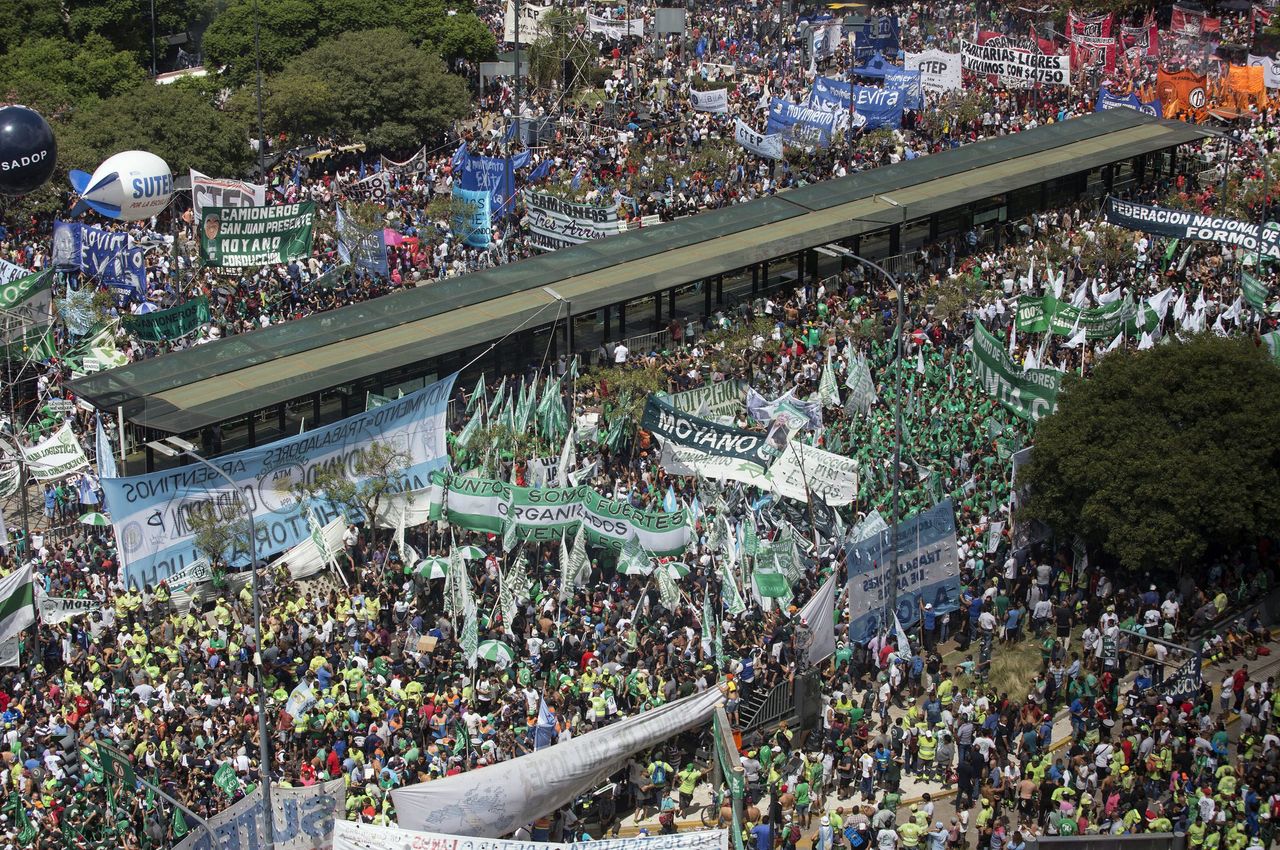
Argentina warns Bolivian immigrants: free health service might come to an end
The President of Argentina Mauricio Macri has announced that he will impose a medical care charge for Bolivians who come to Argentina specially to benefit from free medical treatment.
If in need of a surgery, come to Buenos Aires
Argentina provides a free of charge medical assistance to all foreigners staying in the country. The Bolivians are the ones who take advantage of it quite often. For this reason, the authorities in Buenos Aires have announced that if the Bolivian government does not eliminate charges for Argentinians living in Bolivia, the Argentinian doctors will stop treating Bolivian immigrants for free. – Health care is not free. Someone pays for it. – said Adolfo Luis Rubinstein, Argentine Minister of Health. – For example, between 7% to 10% of all expenditures in health care in the province of Jujuy are related to people who are not residents of our country. They just cross the border to seek treatment. It is important that all Argentinians should have access to high-quality services and that is why we ask Bolivian authorities for free health treatment for our citizens living there. Argentina spends 10% of its GDP on health service. That’s a lot and we should have better results. Obviously, it does not mean that we will not help foreigners in case of emergency. I’m talking about planned surgeries.
Gustavo Bouhid, the head of the health department of the Jujuy province, added that there is no economic crisis in Bolivia and the country is not affected by any disaster. Therefore, Argentina has the right to demand payment from the Bolivians, especially if there is no further agreement between countries. This might be a way to improve the situation in the local health service.
According to statistics published by the daily El Tribuno, La Quiaca hospital’s clinic in the province of Jujuy admitted 20,000 patients in 2017. Two thousand of them were Bolivians. Mothers of four out of seven children born in the that hospital are Bolivians. Women often come at the very last moment, when their water breaks. Some Bolivians also go to Buenos Aires to undergo complicated surgeries that are worth even 250,000 dollars.
Working in construction and selling fruit
According to a study carried out by the Universidad Argentina de la Empresa, 70% of Argentines want the Bolivians to have free access to education and health care. The remaining 30% of the respondents are against – usually inhabitants of poor districts and those cities where there are many Bolivians (for example in Buenos Aires). The poorest people in Argentine are prejudiced against neighbours. They believe they must compete for job with them.
Argentina is the most frequently chosen place of emigration by the Bolivians. At the beginning, they came there to work in agriculture. They picked vegetables, fruit, tobacco and sugarcane. Later they started to live in cities and brought their families from Bolivia. Currently, men mostly work on construction sites, and women sell fruit.
In 2010, over one million eight hundred thousand foreigners lived in Argentina. According to National Census, 30% of immigrants come from Paraguay and 19% from Bolivia. However, the Bolivians estimate that there are many more of them in Argentina, maybe even more than a million. Many of them have an uncertain legal situation or have crossed the border illegally. Although the Bolivian economy has been stable in recent years, many citizens still think about emigration to Argentina. Free high standard education, free health care and good labour conditions are things that encourage them to leave Bolivia.
The Argentinians are right
– I think it is very sad that Argentina, once a big country which supported humanitarian attitude, no longer looks at emigrants in the same way – said Nelson Guarachi Mamani, Bolivian Consul in Jujuy, when he learned about the plans of the Argentine government on changes in the health care system.
At the same time, Evo Morales, the President of Bolivia, did not accept an agreement to ensure the right to free health service for Argentinians living in his country. Bolivian officials sent a letter to Armando Alvarez Garcia, an Ambassador of Argentina in La Paz. They explained that people without insurance also have the right to free health care. It concerns pregnant women (from conception to the sixth month after delivery), children under the age of five, women and men over the age of 60, disabled people as well as general sexual health care. The letter did not mention, however, whether the same rights belong to the foreigners, including Argentinians living in Bolivia.
The refusal caused a political scandal. Evo Morales realized that Argentina is serious about the health care issue and said he was ready to talk about signing the agreement. – Our Argentine brother is right to say that the Argentinians living in Bolivia should be treated equally – he admitted.
Two different political conflicts
This is the second political conflict between Morales and Macri. Earlier, the President of Bolivia was against the governmental decree from the beginning of 2017, which allows immigrants to be expelled from Argentina if they commit crimes or cross the border illegally. The project met with criticism and its opponents reminded Morales that he is the son of an Italian emigrant himself. The President of Bolivia compared the President of Argentina to Donald Trump, with whom Macri is in good relationships. In Morales opinion the decree was xenophobic and discriminatory.
The Argentinians explained: although criminals are expelled faster than ever, more and more foreigners can legally resident in Argentina. Most of them are Bolivians.























